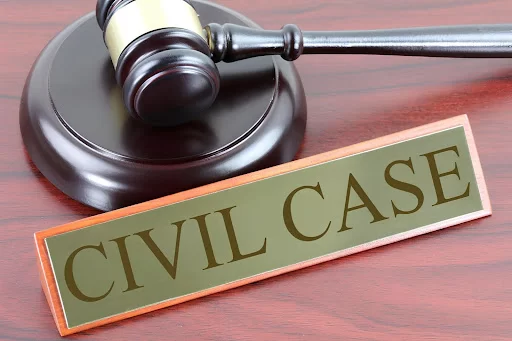- Understanding Civil Court Appeals
- Steps to Appeal a Civil Court Decision
- Common Challenges and Strategies
- Real-Life Case Insights
- Professional Support and Resources
1. Understanding Civil Court Appeals
When faced with an unfavorable ruling in a civil court, many individuals wonder how to appeal a civil court decision. An appeal is a formal request to a higher court to review and change the outcome of a case. Unlike a trial, the appeal process focuses primarily on legal errors made during the original case, rather than re-examining factual evidence.
Understanding the nature of civil court appeals is essential for navigating this complex process. Appeals are not a retrial; they rely heavily on written briefs and legal arguments presented by both parties. Courts typically examine whether the trial judge correctly applied the law, whether procedural fairness was maintained, and if any significant mistakes affected the verdict.
This distinction is critical because it shapes how you prepare your appeal. Knowing that the appeal court is concerned with legal points rather than facts helps focus your efforts on identifying specific errors in the original decision.
1.1 Types of Decisions That Can Be Appealed
Generally, final judgments in civil cases can be appealed. However, some interlocutory or procedural rulings during the case might also be eligible under certain conditions. For instance, if a court made a significant error during evidence admission or interpretation of contract terms, these might form the basis of a successful appeal.
1.2 Time Limits and Jurisdiction
One of the most crucial aspects of appealing is timing. Courts enforce strict deadlines, often between 30 to 60 days from the date of the original judgment. Missing this window can forfeit the right to appeal entirely. Additionally, understanding which appellate court has jurisdiction over your case is vital; this varies by state and the type of civil case.
2. Steps to Appeal a Civil Court Decision
Knowing how to appeal a civil court decision involves a series of well-defined steps. Careful attention to each stage can improve your chances of success and reduce costly delays.
2.1 Requesting Permission to Appeal
In some jurisdictions, you must first obtain permission, or “leave,” to appeal. This involves submitting a formal application showing that your case raises a substantial question of law or injustice.
2.2 Preparing the Notice of Appeal
The notice of appeal is a fundamental document that initiates the appellate process. It must clearly state your intention to appeal and comply with specific procedural requirements, such as filing within the deadline and paying the appropriate fees.
2.3 Compiling the Appeal Record
The appeal record consists of all documents, transcripts, and evidence presented at trial. This record forms the basis of the appellate court’s review. Ensuring the record is complete and accurately reflects the original proceedings is critical.
2.4 Writing the Appellate Brief
This is where legal expertise comes into play. The appellate brief lays out your arguments, pointing out specific legal errors and supporting your position with statutes, case law, and logical reasoning. A well-crafted brief can make the difference between success and failure on appeal.
2.5 Oral Arguments and Decision
Depending on the court, there may be an opportunity to present oral arguments. This allows you to clarify key points and respond to judges’ questions. After reviewing the briefs and arguments, the appellate court will issue a decision, which may affirm, reverse, or remand the case.
3. Common Challenges and Strategies
Appealing a civil court decision is not without obstacles. Many appeals fail due to procedural mistakes, insufficient legal grounds, or weak arguments. Understanding common challenges can help you prepare more effectively.
3.1 Avoiding Procedural Pitfalls
Filing errors, missed deadlines, and incomplete records are frequent causes of dismissal. Meticulous attention to court rules and timelines is essential. Consulting with a legal professional early on can help navigate these requirements smoothly.
3.2 Focusing on Strong Legal Issues
Successful appeals usually highlight clear legal errors rather than disagreements over factual findings. Identifying errors such as misinterpretation of law, abuse of discretion, or violation of due process can strengthen your case.
3.3 Preparing for Possible Outcomes
Be realistic about the appeal's potential results. Courts may uphold the original decision, send the case back for a new trial, or modify parts of the judgment. Planning for these scenarios helps manage expectations and next steps.
4. Real-Life Case Insights
Consider the story of Mr. Johnson, who lost a property dispute in a civil court. After working with experienced counsel, he appealed on grounds that the judge had improperly excluded crucial evidence. The appellate court agreed, leading to a retrial where Mr. Johnson ultimately prevailed. This case highlights the importance of pinpointing procedural errors and the power of a well-prepared appeal.
Similarly, a small business owner once faced a breach of contract ruling that overlooked a key legal precedent. By appealing and citing this precedent, the appellate court reversed the decision, saving the business from significant financial loss. These examples demonstrate how appeals, when handled correctly, can provide a vital second chance for justice.
5. Professional Support and Resources
Given the complexity and critical nature of appealing civil court decisions, seeking professional advice is highly recommended. Lawyers specializing in civil litigation appeals bring invaluable expertise in identifying viable legal grounds and navigating procedural hurdles.
For those unsure about how to proceed, services like Fred Miller Lawyer offer tailored support to guide you through the appeal process, from initial assessment to final judgment. Their knowledge can help you understand your options, prepare strong arguments, and ultimately increase your chances of a favorable outcome.
In conclusion, while appealing a civil court decision can seem daunting, understanding the process, avoiding common mistakes, and accessing expert legal help can make a significant difference. Careful preparation and strategic focus are key to turning an unfavorable ruling into an opportunity for justice.


 8400 nw 36 st
8400 nw 36 st law offices of richard lasalle
law offices of richard lasalle kenneth montgomery attorney
kenneth montgomery attorney sarieh law offices alc
sarieh law offices alc linda kerns law
linda kerns law divorce lawyers centennial
divorce lawyers centennial